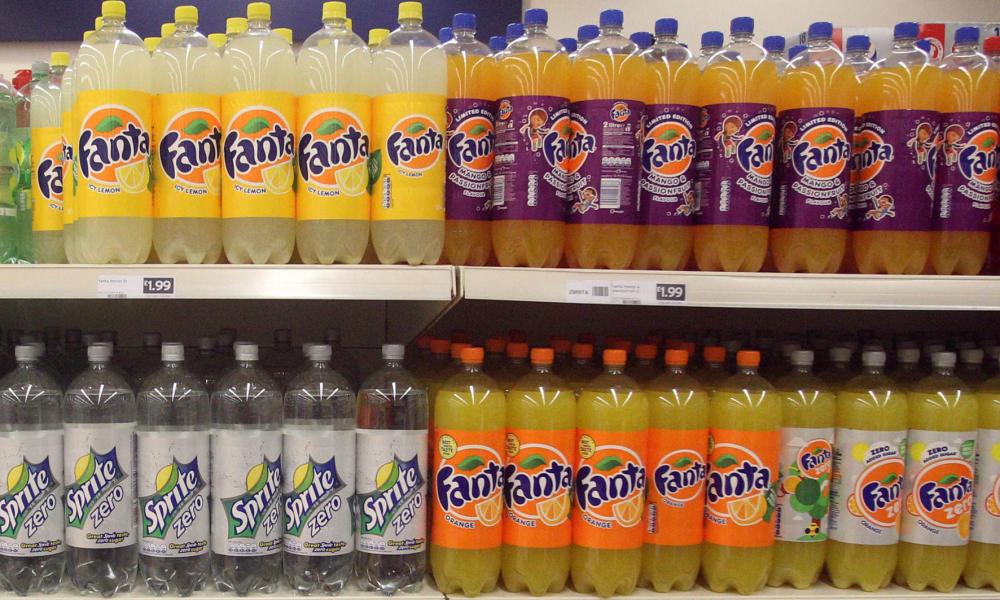
SUGAR INCREASE IN FANTA AND SPRITE PROMPTS CALLS FOR NEW TAX ON AUSTRALIA’S FOOD AND DRINKS INDUSTRY
An increase in sugar in two popular soft drink brands has prompted health experts to renew calls for laws to cut the sugar in beverages, and to tackle “appalling” behaviour from the food industry.
In July 2020, the government began rolling out the “partnership reformulation program” to encourage food companies to gradually reduce sugar, sodium and saturated fats in their products. The program is entirely voluntary.
The Australian Beverages Council also announced a pledge to reduce the sugar in beverages by 20% by 2025, and encouraged the non-alcoholic beverage industry to sign up. Just four manufacturers have signed up since 2018.
Related: Doctors warn Australia risks being ‘odd one out’ if it resists sugar tax on soft drinks
On Wednesday News Corp revealed that despite initially signing up to the pledge and reducing the sugar content of the soft drink Fanta to 4.5 grams per 100ml in 2021, the manufacturer of the drink, Coca-Cola, has since increased the sugar content to 7.2 grams per 100ml.
It means one 600ml bottle would bring people to close to World Health Organization recommendations that state adults should consume no more than 50 grams of sugar a day, and ideally no more than 25 grams for better health.
When contacted by Guardian Australia for comment, a spokesperson for Coca-Cola Australia said the drink Sprite also now contains 6.9 grams of sugar per 100ml. This is up from 4.9 grams in 2021.
“We are proud of the progress we have made to date around reducing sugar within our portfolio but know there is more work to do,” she said. “We will continue to invest in our zero sugar range, develop new low and zero sugar products and introducing smaller pack sizes.”
The president of the Australian Medical Association, Prof Steve Robson, said the increase is evidence governments need to step in and impose a sugar tax on the food and beverage industry.
“The industry’s sugar reduction pledge to reformulate isn’t working … with only four manufacturers signing up,” he said.
More than 100 countries and jurisdictions have implemented some form of tax on sugary drinks. Research has found implementing a 20% tax on sugar-sweetened beverages in Australia could result in 4,400 fewer cases of heart disease, 16,000 fewer cases of type 2 diabetes, and 1,100 fewer strokes over 25 years.
“This is money that could be invested into crucial health promotion campaigns, reducing pressure on our stretched health system,” Robson said.
The Cancer Council, Heart Foundation, Food for Health Alliance and Australian Dental Association all support a tax on the manufacturers of sugary drinks.
Dr Adyya Gupta, from Deakin University’s Global Centre for Preventive Health and Nutrition, said the sugar increase in Fanta was “very appalling, given that we understand sweetened beverages are amongst the key contributors to an unhealthy diet”.
“It’s absolutely appalling to see that it’s increased,” she said. “An Australian adult is consuming about 58 to 60 grams of sugar per day, with sugar sweetened beverages the largest source.”
Along with a sugar tax, the government needs to prioritise health in trade agreements and policy; better regulate advertising and improve food labelling; and strengthen dietary guidelines, Gupta said.
“Obesity is a complex problem and needs a suite of policies in order to have a significant impact on the health of the whole population,” she said. “I am totally against putting the onus on the individual because it’s just impossible given everything has so much sugar in it, and improving the food environment means implementing measures holding the industry to account.”
2024-04-10T09:16:46Z dg43tfdfdgfd